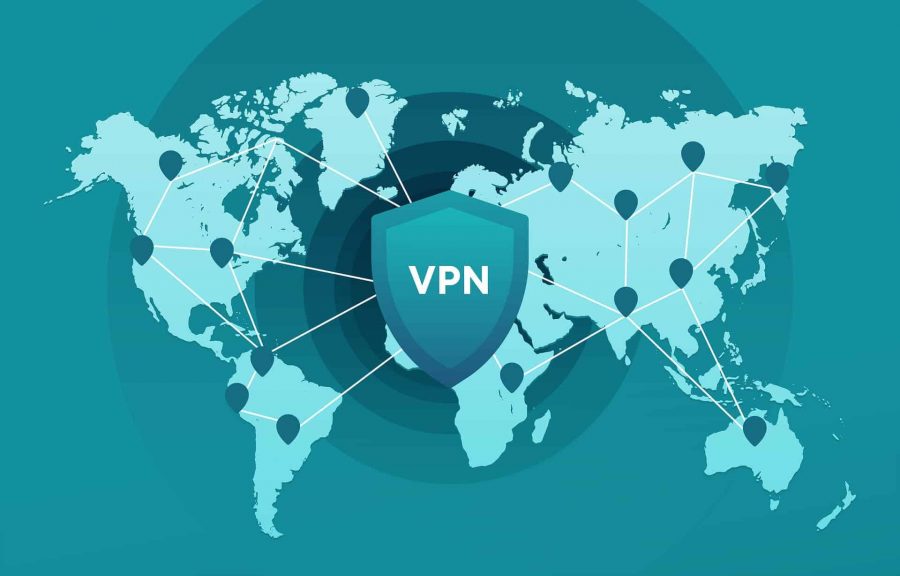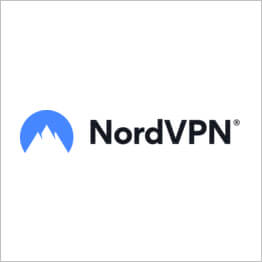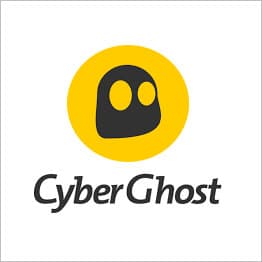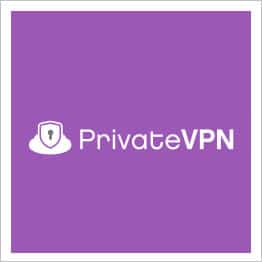Public Wi-Fi security: Why a VPN is a necessity

Many of the hotspots found in public places have poor Wi-Fi security. Free public Wi-Fi hotspots, such as those found in coffee shops and hotels, are susceptible to cyber attacks due to a lack of strong passwords or weak router configurations, which is why it is recommended to use VPN for public Wi-Fi access.
For business users, it is convenient to use public Wi-Fi when working away from the office. But we all know how much risk that carries and what harm can it do to your devices and gadgets if you do not secure the public internet connection first.
To protect your privacy, you can secure your devices by using a VPN to connect to public Wi-Fi. VPN servers let you connect to the internet through them. VPNs encrypt your traffic so that you are protected against the security threats that may come from public Wi-Fi hotspots. Another advantage of a VPN is that it can bypass geo-restriced content.
Small and medium business seeking to implement good cyber security practices for remote workers should advocate the use of a VPN.
Still, not every VPN serves the same purpose. In-fact they all come with their imperfections, different speed and range of compatibility.
On this page:
- What is a public Wi-Fi hotspot?
- How are public Wi-Fi networks hacked
- How to secure your internet connection
- Is a VPN needed before connecting to a public hotspot?
- 5 tips for using public Wi-Fi securely
- Is using a VPN legal?
- Is it safe to use a free VPN?
- How to get VPN for public Wi-Fi
- Best VPNs to use with public Wi-Fi hotspots
What is a public Wi-Fi hotspot?
Nearly all businesses are familiar with Wi-Fi, and the convenience it provides. From a technical perspective, Wi-Fi is the technology which allows computers and other devices such as tablets, phones and laptops, to connect to the internet and communicate wirelessly.
A public Wi-Fi hotspot is a physical location where anyone can obtain internet access. This is achieved by configuring a wirless adapter to create a “hotspot.” The hotspot is typically provided and configured by the owner or operator of the public site, such as a bar, coffee shop or shopping mall.
Wireless networks can be located in the home, which is an example of a “closed network,” or in a public place, which can be either open or closed depending on the security settings in place. Generally, public Wi-Fi security is often weak, posing security risks to users.
How are public Wi-Fi networks hacked
Public Wi-Fi security is often poor with many free Wi-Fi hotspots easy to hack, even for a novice. Once public Wi-Fi security has been breached, hackers can use a variety of tools to obtain personal and confidential data, such as passwords, bank details, credit card details and more.
Essentially, unecrypted traffic is vulnerable. From financial information to images from the gallery, all data has potential value for cyber criminals. Consequnetly, users should be vigilent of where and how there devices connect to the internet. Cyber criminals can exploit public Wi-Fi security in a number of ways, common examples are:
Man-in-the-middle attack (MITM)
Using this attack method, cyber attackers can exploit security flaws in the network to intercept the communication between two parties (users of public Wi-Fi and the public Wi-Fi router), posing as a legitimate intermediary. While there are various types of MITM attacks, one of the most common is to intercept a user’s request to access a website, responding with a fraudulent webpage that seems legitimate. This could be pretty much any website, from online banking to file sharing and email providers.
Fake Wi-Fi hotpots
A common ploy by cyber attackers is to set up imposter Wi-Fi hotspots, luring users to connect to the rogue network. Once a user joins this phony network, cyber criminals can inject malware onto the target device.
Shoulder surfing
Basically, spying. A hacker will watch you enter your PIN, password, or other sensitive information. If somebody is lurking near you when you are using your computer or mobile device they could potentially be watching or recording your actions.
How to secure your internet connection
As obvious as it may sound, any unecrypted traffic you send from your device to the internet can potentiatlly be accessible to hackers and can be exploited. However, with a VPN, you can minimise the risks of using public Wi-Fi.
VPN stands for Virtual Private Network. A VPN provides an encrypted tunnel. VPN providers offer simple to use software which creates a secure tunnel between your device and the internet.
Before using a free public Wi-Fi hotspot, users simply need to open the VPN software and establish an encrypted connection with a remote server. Most VPN providers operate on a subscription basis and provide a host of globally located servers that users can connect to, concealing your source IP address with that of the one of their servers.
Learn more about How to set up secure VPN when using public Wi-Fi
Any data sent to the internet through the protected tunnel, created by the VPN software, is encrypted – thereby securing personal and confidential data.
Is a VPN needed before connecting to a public hotspot?
Yes. No matter where you are, if you are not on a known secure Wi-Fi, you need to use a VPN if you want to prevent your data and device from getting infected by any malware. A public hotspot is considered to be the hackers’ paradise as they can access so many unprotected devices with little to no effort.
5 tips for using public Wi-Fi securely
While a VPN will encrypt your data when connecting via a public Wi-Fi hotspot, there are some additional best practices that users can take to improve public Wi-Fi security:
1. Verify the network: Always double-check the name of the network you are connecting to (SSID). Cyber criminals will use similar sounding names to lure potential victims.
2. Switch of sharing: After you verified the network, deactivate the file sharing option. File sharing is easy to turn off from the system preferences or control panel, depending on your operating system.
3. Use secure connections: Only connect to devices that permit connectection via HTTPS and SSL. Look for the padlock icon which indicates it is secured. Similarly, try only connecting to a public hotspot which is secured by a password. It’s much better and to some extent save.
4. Keep the firewall and antivirus enabled: While it won’t provide complete protection while using public Wi-Fi, firewalls can prevent unauthorised external access to your system. Antivirus will detect any malware which may get on to your system while using the shared network.
5. Disable auto-connect: Keep your Wi-Fi setting so that it does not automatically connect to Wi-Fi.
Is using a VPN legal?
VPNs are legal to use in the majority of the countries, however some exceptions do exist. Those countries are known as a grey area and are as follow:
- United Arab Emirates
- Turkmenistan
- Turkey
- Russia
- Oman
- North Korea
- Iraq
- Iran
- China
- Belarus
Is it safe to use a free VPN?
It is not recommended to use a free VPN for the following reasons:
Lack of security: Free VPNs are unlikely to be secure. They lack encryption and do not provide DNS leak protection or a kill switch.
Speed: Free VPNs offset the cost of the service by serving advertisements to the users of the service. Advertisements tend to slow down the connection speed, ruining your experience of streaming and browsing.
Integrity of your data: Free VPNs may be from an untrustworthy source. In some rare cases, they may sell your data to the highest bidder while also making money from the ads shown to you.
How to get VPN for public Wi-Fi
The majority of VPN providers provide software which can be downloaded and installed on your device.
Although they are mostly used for when you are not connected to your home network, we recommend always to use a VPN to make things extra secure and leave no space for hackers to work. Follow the below 4 steps to get VPN on to your system:
- Firstly, look for the best VPN that would suit your demands and needs.
- Secondly, visit the VPN service provider’s website and download the VPN application. You will need to subscribe to the VPN service which will require you to enter your details.
- Thirdly, once downloaded, connect to a server available in your area.
- Finally, once connected, you connection is now secure and encrypted.
Best VPNs to use with public Wi-Fi hotspots
The best VPNs for public Wi-Fi provide high level security while simulataneously offering high-speed servers and applications with an user friendly interface. Bearing this in mind, the selection criteria has focused on this VPNs which offer the following:
- High-level security with encryption
- Advanced security features such as DNS leak protection and kill switch
- VPN servers capable of supporting fast browsing, and high-speed streaming and video calling
- No logs policy that protects privacy
- A worldwide network of servers based in multiple geographical regions
- Customer support with live chat
- Apps for both desktop and mobile
1. NordVPN

Launched: 2012
Available on:
Key Features: Over 5,000 remote servers in 58 countries. Besides general-use VPN servers, also offers servers for P2P sharing, double encryption, and connection to the Tor network. Easy-to-use user interface and 24/7 customer support service.
Website: www.nordvpn.com
2. ExpressVPN

Launched: 2009
Available on:
Key Features: Over 3,000 remote servers in 160 locations and 94 countries. Can unblock the majority of geo-restricted streaming services. Friendly user interface and provides 24/7 customer support service.
Website: www.expressvpn.com
3. CyberGhost

Launched: 2004
Available on:
Key Features: Over 6,000 remote servers in 111 across 90 countries. Utilises high-end encryption and has a strict end-to-end no log policy.
Website: www.cyberghostvpn.com
4. IPVanish

Launched: 2012
Available on:
Key Features: Over 1,300 remote servers in over 75+ locations globally. However, largest concentration of VPN servers are in the United States, United Kingdom, and Australia, with some servers in Turkey and Hong Kong.
Website: www.ipvanish.com
5. PrivateVPN



